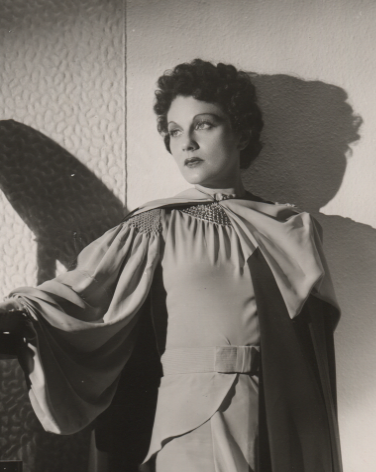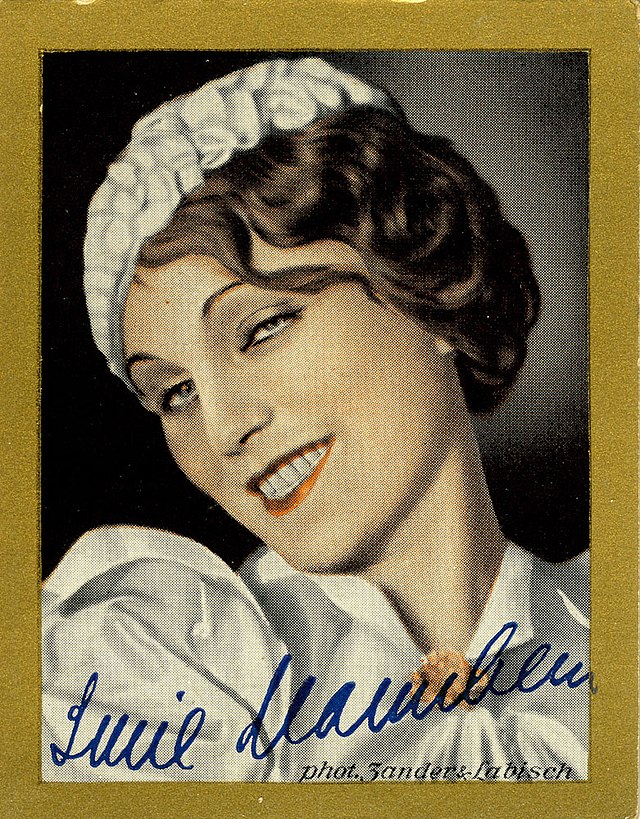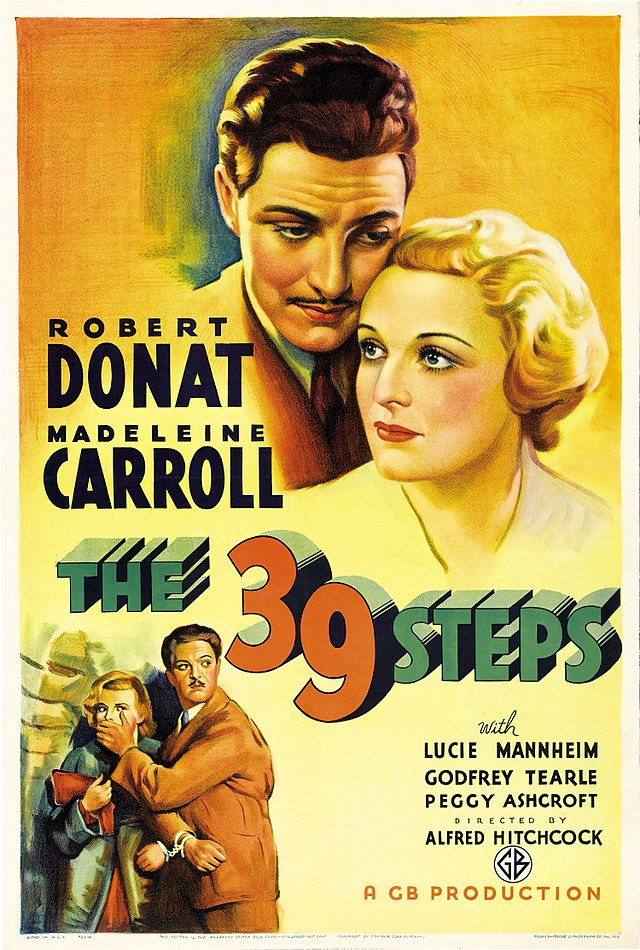Lucie Mannheim (1899 – 1976)
Biography and Movie Career
Lucie Mannheim was born on April 30, 1899, in Berlin, Germany, into a family that valued culture and the arts. From a young age, she exhibited a passion for performance, leading her to pursue studies in drama in her hometown. Her dedication and talent quickly propelled her onto the stages of Berlin's theaters.
Early Career and Rise to Prominence
Mannheim's theatrical debut came in 1916 at the Königsberg Theater. By 1918, she had secured a position at the Volksbühne in Berlin, where she remained until 1922. Her performances during this period showcased her versatility and depth as an actress. From 1924 to 1933, she was a leading actress at the Prussian State Theater, where she took on challenging roles such as Nora in Henrik Ibsen's A Doll's House, Marie in Georg Büchner's Woyzeck, and Juliet in Shakespeare's Romeo and Juliet. These performances solidified her reputation as one of Germany's foremost actresses.
Transition to Film
Mannheim's film career began in the silent film era of the early 1920s. She starred in notable films such as Der Schatz (1923), directed by G. W. Pabst, and Die Austreibung (1923) by F. W. Murnau. With the advent of sound in cinema, she continued to captivate audiences, notably in Atlantik (1929), one of the earliest films about the Titanic disaster. In 1931, composer Walter Goetze wrote the operetta Die göttliche Jette specifically for her, highlighting her prominence in the German arts scene.
Challenges and Emigration
The rise of the Nazi regime in 1933 brought significant challenges for Mannheim due to her Jewish heritage. Facing increasing persecution, she was forced to leave Germany. She first sought refuge in Czechoslovakia before moving to the United Kingdom. In Britain, she continued her acting career, most notably portraying Annabella Smith in Alfred Hitchcock's The 39 Steps (1935). This role introduced her to international audiences and remains one of her most recognized performances.
Personal Life and Passions
In 1941, Mannheim married British actor Marius Goring. Their marriage spanned 35 years, enduring until her death in 1976. During World War II, Mannheim was actively involved in anti-Nazi propaganda efforts. She broadcasted messages to Germany via the BBC and performed an anti-Hitler version of the song "Lili Marleen" in 1943, aiming to undermine Nazi morale and encourage resistance.
Return to Germany and Later Career
After World War II, Mannheim returned to Germany in 1948. She resumed her stage and film career, participating in various German productions. Her final English-language film appearance was in Bunny Lake Is Missing (1965). She concluded her acting career with a television film in 1970.
Death
Lucie Mannheim passed away on July 17, 1976, in Braunlage, West Germany. Specific details regarding the cause of her death are not widely documented. Her legacy as a talented actress and her resilience in the face of adversity continue to be remembered and celebrated.
Video Documentary on Lucie Mannheim
Understated Acting Style of Lucie Mannheim
Lucie Mannheim’s acting style was a fascinating blend of classical theatricality and expressive realism, shaped by her early years on the German stage and later refined through her experiences in both European and British cinema. Her performances were marked by a striking presence, an ability to convey deep emotion with subtle gestures, and a distinctive voice that lent itself well to both spoken drama and musical roles.
Stage Influence and Theatricality
Mannheim’s career began in the prestigious theaters of Berlin, where she tackled complex roles in classical and modern plays. This theatrical training was evident in her screen performances, where she demonstrated a commanding presence, even in smaller roles. She had a keen understanding of pacing, knowing when to deliver lines with a weighty, deliberate cadence and when to allow a scene to breathe. Her ability to project emotions with clarity, often with expressive eyes and carefully measured body language, reflected her deep-rooted stage experience.
Expression and Emotional Depth
One of Mannheim’s greatest strengths as an actress was her emotional range. Whether playing tragic heroines or shrewd, determined women, she could balance vulnerability with strength. Her performance in The 39 Steps (1935) as Annabella Smith is a perfect example—her character, though on screen for a short time, leaves a lasting impact through her urgency, enigmatic aura, and quiet intensity. She could convey tension, desperation, and intelligence with just a glance or a shift in tone, making her presence felt even in brief scenes.
Versatility and Adaptability
Mannheim’s career saw her transition from silent films to talkies and later from German to English-language productions. She adapted seamlessly to different cinematic styles, from the expressionist tones of early German cinema to the crisp, dialogue-driven British thrillers of the 1930s and 1940s. Her ability to switch between languages and cultures without losing the authenticity of her performances speaks to her adaptability as an actress.
A Subtle, Understated Approach
Unlike some of her contemporaries who leaned into melodrama, Mannheim often favored an understated style that allowed emotions to simmer beneath the surface. This was particularly effective in her more suspenseful roles, where her quiet intensity and controlled delivery added layers of intrigue to her characters. Her ability to command attention with stillness and precise inflections made her an ideal choice for roles that required intelligence, mystery, and quiet resilience.
Influence of Political Exile on Her Performances
Having fled Nazi Germany due to her Jewish heritage, Mannheim carried with her a sense of personal loss and resilience, which often found expression in her roles. During World War II, she contributed to anti-Nazi propaganda efforts, and this deep political awareness informed her performances, adding an unspoken gravitas to her work. She was not just playing roles—she was bringing a lived experience of displacement and resistance to them.
Later Career and Enduring Legacy
As Mannheim aged, she transitioned into character roles that showcased her wisdom and grace. Even in smaller roles, such as in Bunny Lake Is Missing (1965), she remained a compelling screen presence. Her career reflected the evolution of cinema itself—from silent films to wartime propaganda to post-war realism—and her adaptability ensured that she remained a relevant and respected actress throughout.
Final Thoughts
Lucie Mannheim’s acting style was a harmonious blend of stage precision, emotional depth, and cinematic subtlety. Her ability to shift seamlessly between vulnerability and strength, her understated yet impactful delivery, and her adaptability to different film industries made her a truly unique actress. Whether as a mysterious femme fatale, a determined resistance figure, or a wise and dignified elder, she left behind a legacy of performances that continue to be studied and appreciated today.
Awards and Recognition
• Commander's Cross of the Order of Merit:
In 1959, Mannheim was honored with the Commander's Cross of the Order of Merit of the Federal Republic of Germany, acknowledging her outstanding contributions to German arts and culture.
• Staatsschauspieler Title:
In 1963, she was bestowed with the prestigious title of "Staatsschauspieler" ("State Actor") for Berlin, reflecting her exceptional impact on the German theater scene.
• German Film Award
Honorary Award: In 1967, Mannheim received the Filmband in Gold (Film Ribbon in Gold) for her long-standing and outstanding contributions to German cinema.
Notable Movie Quotes
Notably, in Alfred Hitchcock's The 39 Steps (1935), she portrayed Annabella Smith, delivering memorable lines that have become iconic in cinematic history. Here are some of her notable quotes from that film:
• Annabella Smith: "I am here to save a secret from being divulged. A very important secret for this country. Not because I love England, but because it will pay me better."
• Annabella Smith: "Have you ever heard of the 39 Steps?"
Richard Hannay: "No. What's that, a pub?"
• Annabella Smith: "Beautiful, mysterious woman pursued by gunmen. Sounds like a spy story."
Richard Hannay: "That's exactly what it is."
Lucie Mannheim Movies Overview
1920s
• 1923 – Der Schatz
• 1925 – Die Prinzessin und der Geiger
• 1926 – Der Herr Generaldirektor
• 1926 – Die dritte Eskadron
• 1927 – Die Hochstaplerin
• 1927 – Bigamie
• 1928 – Eva in Seide
• 1929 – Atlantik
1930s
• 1931 – Danton
• 1933 – Madame wünscht keine Kinder
• 1933 – Das verliebte Hotel
• 1935 – The 39 Steps
• 1936 – East Meets West
• 1937 – The High Command
1940s
• 1943 – Yellow Canary
• 1944 – Hotel Reserve
• 1944 – Tawny Pipit
1950s
• 1950 – Stern von Rio
• 1950 – König für eine Nacht
• 1950 – Dreizehn unter einem Hut
• 1951 – Die verschleierte Maja
• 1952 – Der fröhliche Weinberg
• 1953 – Arlette erobert Paris
• 1953 – Liebeserwachen
• 1953 – Königliche Hoheit
• 1954 – Ein Haus voll Liebe
• 1955 – Stern von Afrika
• 1956 – Der schräge Otto
• 1956 – Ein Herz kehrt heim
• 1958 – Der Schinderhannes
1960s
• 1961 – Geliebte Hochstaplerin
• 1962 – Das schwarz-weiß-rote Himmelbett
• 1965 – Bunny Lake Is Missing



